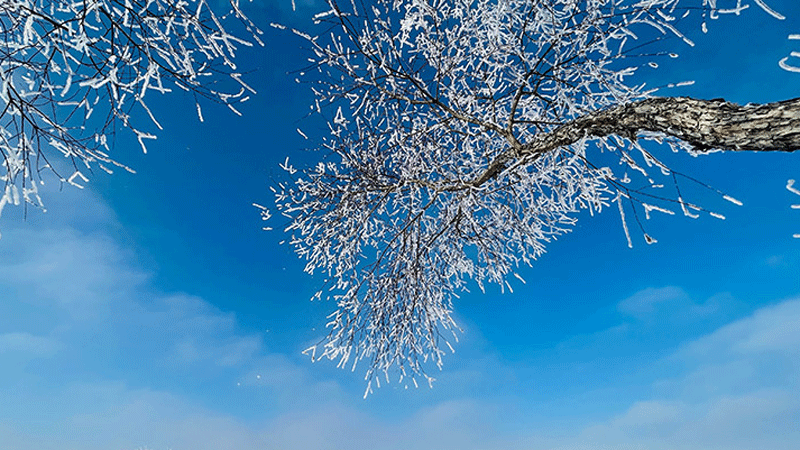The life of a tea maker, steeped in jasmine fragrance
FUZHOU, Dec. 1 (Xinhua) -- "How beautiful the jasmine is! How beautiful the jasmine is! A sweet smell covers the budding twigs. So fragrant, so white, admired by all lips." The famed Chinese folk song Jasmine Flower has reached a global audience with its beautiful melody and lyrics.
Equally popular is the traditionally made Jasmine tea, whose elegant fragrance and mellow taste fascinate countless tea drinkers.
Chen Chengzhong has a big say in the production of Jasmine tea as he is a practitioner of Fuzhou Jasmine tea scenting techniques, which have state-level intangible cultural heritage status in China.
The 72-year-old tea maker from Fuzhou City in east China's Fujian Province started his career early in his teenage years, when he became an apprentice in a state-owned tea factory.
Jasmine tea is tea scented with the aroma of jasmine blossoms and typically has green tea as its base.
Chen chatters away joyfully when it comes to jasmine tea scenting. The natural scenting process consumes fresh jasmine blossoms, plucked during the daytime when the buds are closed, Chen said. And the green tea leaves from the spring harvest are stored until the most fragrant jasmine blossoms in late summer.
The hot and humid climate and the red soil in east China's Fujian Province provide favorable conditions for jasmine and tea plants to thrive, becoming the high-quality ingredients that are needed for jasmine tea.
"Our jasmine flowers and tea leaves are all sourced from Fujian in large quantities, despite the fact that they are pricier than those from other origins," Chen said. "That's how we make authentic Fuzhou jasmine tea."
For Chen and his team, summer nights evoke memories of arduous labor, as jasmine usually comes out at night.
When the fresh jasmine flowers are harvested, they are blended with layers of tea leaves. Workers stir the tea leaves and flowers overnight, allowing the leaves to absorb the aromatic scent of the jasmine blossoms.
In the morning, the flowers are sorted, the leaves are dried, and the process is repeated. More repetition makes for a more robust jasmine flavor, and it takes at least nine scenting processes to produce jasmine tea of a superb grade.
Sophisticated scenting techniques translate into an extraordinary fragrance and smooth taste -- the criteria for evaluating top-notch jasmine tea, Chen said.
Having been designated as the representative practitioner of Fuzhou Jasmine tea scenting techniques, Chen now focuses more on passing on the scenting techniques, giving lectures to students and apprentices.
Chen's son Chen Zheng is motivated to follow in his father's footsteps and move forward with the scenting techniques.
"Like my father, I also hope to practice this traditional skill that has profound cultural deposits, and pass it on," Chen Zheng said.
China's traditional tea making method was on Tuesday added to the UNESCO intangible cultural heritage list.
Photos
Related Stories
- China's traditional tea-making techniques included into UNESCO cultural heritage list
- China's Yunnan passes regulation on protecting centuries-old tea trees
- Pic story: inheritors of tea making technique in Ya'an, China's Sichuan
- Zisun tea: tribute tea in the Tang Dynasty
- China's traditional tea-making enters UNESCO cultural heritage list
- Pu’an county advances rural revitalization by planting white tea trees
Copyright © 2022 People's Daily Online. All Rights Reserved.









